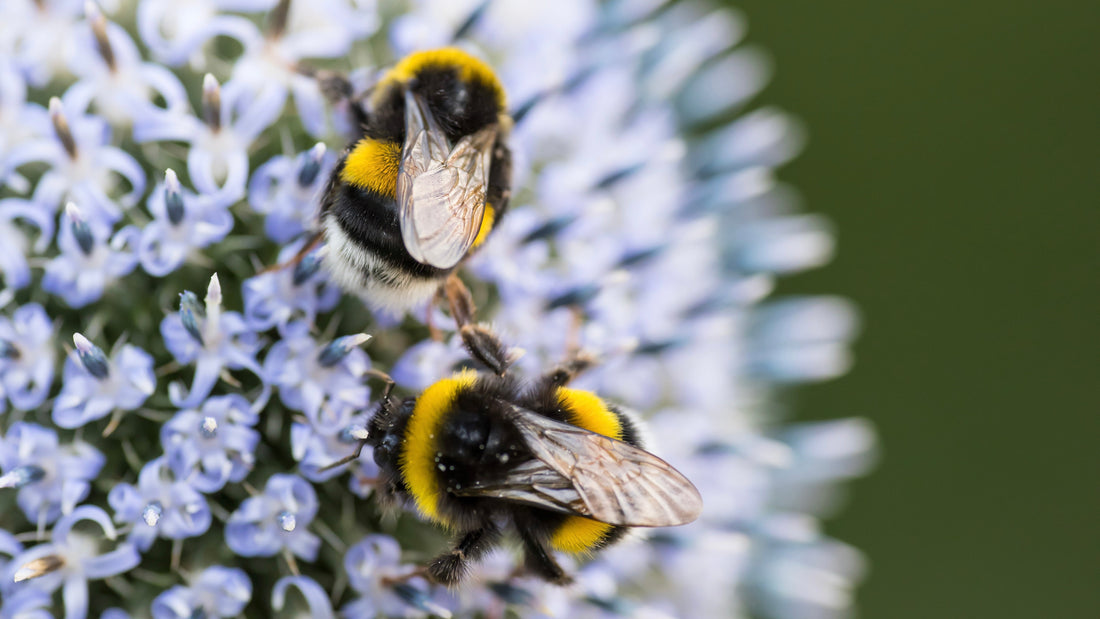In a groundbreaking new study, scientists at Newcastle University and the University of Birmingham have uncovered a fascinating insight into the emotional world of bees. Their research suggests that when bees experience stress, they become pessimistic—yes, pessimistic—and this could have serious consequences for pollination, agriculture, and even business ecosystems.
Bees and Their Emotional Lives?
While we often associate emotions with humans or higher animals, researchers have found that bumblebees exhibit “emotion-like” responses to stress. Just like a stressed employee might be less likely to take risks or see opportunities, bees exposed to simulated predatory attacks became significantly more cautious and hesitant when evaluating rewards.
The Science: Stress Makes Bees Play It Safe
Bees were trained to associate different colours with rewards—some colours signalled high rewards (sweet nectar), while others indicated a low-reward location. After this training, some bees experienced a simulated predator attack, while others remained undisturbed. The results were striking:
- Stressed bees were far more likely to interpret ambiguous colours as indicating low rewards.
- Instead of taking chances on potential high-reward locations, these bees played it safe and settled for lower-quality options.
- Their pollination patterns shifted, potentially impacting plant biodiversity and crop yields.
Why Businesses Should Care About Bee Stress
For companies invested in sustainability, agriculture, or the food supply chain, these findings have serious implications:
- Pollination Efficiency at Risk—If stressed bees avoid certain flowers or fail to seek out high-reward blooms, agricultural yields could suffer. Reduced pollination means lower crop production, which impacts food supply chains worldwide.
- Environmental Stressors Are Rising—Due to increasing pesticide use, habitat loss, and climate change, bee stress is at an all-time high. Understanding how stress affects bees' decision-making could help develop better conservation strategies.
- Lessons for Corporate Culture—Interestingly, bees under stress behave much like overworked employees. Stressed workers may be less likely to take risks, innovate, or maximize their potential, just as these bees avoided high-reward opportunities. Prioritizing workplace well-being might have more in common with bee conservation than we think.
What Can Be Done?
Just as businesses implement wellness programs to support employees, conservation efforts must focus on reducing stressors for pollinators. Sustainable farming practices, habitat restoration, and reducing pesticide use are all critical in ensuring bees can thrive.
Dr Olga Procenko, who led the research, emphasizes that these findings open up new possibilities for understanding how stress affects insect cognition and behaviour. “Besides suggesting that states akin to emotion may be evolutionarily conserved, our study provides insights into how stress impacts pollination, which is essential for biodiversity and food security.”
A Call to Action for Businesses
For companies invested in sustainability, supply chain resilience, or environmental responsibility, supporting pollinator-friendly initiatives isn't just good ethics—it’s smart business. Without efficient pollinators, agricultural industries face significant risks.
So, what’s the takeaway? Just like fostering a healthy work environment leads to better business outcomes, ensuring a stress-free world for bees leads to a healthier planet. It’s time to give our buzzing friends a break—because when bees thrive, so do we all.
Read the full article at:
https://www.ncl.ac.uk/press/articles/latest/2024/10/pessimisticbees/

